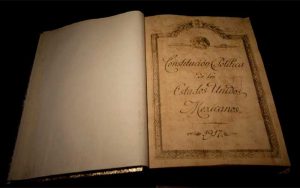
On December 4, 2007, the President of Mexico presented before the Senate of the Republic, through the Ministry of the Interior, a constitutional reform initiative to amend Articles 108 and 111 of the Political Constitution of the United Mexican States (the “Constitution”) to modify the wording of the constitutional text in order to establish that the President may be criminally prosecuted for the commission of a greater number of acts than those mentioned in the proposed constitutional reform.
In this sense, the current text of Article 108 of the Constitution provides that the President of Mexico, during his term of office, may be tried only for treason and for serious crimes against public order. On the other hand, the proposed reform initiative proposes to expand the text of the aforementioned article so that the acting president may also be tried for acts of corruption and electoral crimes, as well as serious crimes in general, without the need for them to be committed against public order.
Likewise, this initiative seeks to amend Article 111 of the Constitution to establish that it is possible to initiate criminal proceedings against the president, as opposed to the previous wording, which did not mention this term.
By virtue of the foregoing, if the constitutional initiative presented is approved, in the event that the President commits any of the crimes of treason, corruption, electoral crimes or crimes that are considered serious, an accusation must be presented to the Senate, which will create a sentencing jury and issue a resolution that must be approved by at least two thirds of those present at the corresponding session.
Finally, in order for such initiative to be approved, it will require the vote in favor of at least two thirds of the Congress of the Union and the approval of the majority of the legislatures of the states of the Republic, which is very likely considering the current political situation in Mexico.




